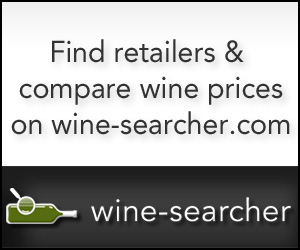How relevant is Bordeaux for the average American wine consumer?
© by Taylor Eason
 | |
But will the average American consumer buy and enjoy wines that have virtually no sensation of sweetness and need at least an hour of air before saying hello? Methinks not. Bordeaux – and I am speaking in huge generalities as plenty of aging collectors and see-and-be-seen wine drinkers will slap me for this opinion – isn't something 95% of Americans are even vaguely tempted to buy. Used to labels with clearly stated grape varietals and often accompanied by flowing, ethereal tasting notes, wine drinkers will have an easier time solving the Da Vinci Code than determining whether the arcane-looking French bottle contains Merlot or Cabernet Sauvignon.
Wine writers can jump up and down, throw childish tantrums and bloviate 'til they're red in the face but once you get down to it, if one of my readers heads to the wine shop and buys a bottle of 2009 Bordeaux on my recommendation, I fear they'll be disappointed. In general, Americans want full-bodied but they want fruit-forward, they want tannins but want them smooth and approachable – two things Bordeaux hasn't successfully delivered from their cool, rainy part of the wine world.
In every single tasting note after the ten 2009 red wines from Bordeaux, these words figured prominently: dusty, very young, tannic, oak, black cherry, needs food.
Do I sense a trend?
Americans are now drinking wine more than ever before and I'm almost drawn to proud tears with this news. I'd like to think that wine writers/bloggers like myself and many others have helped move this needle. Sure, much of what's being swilled is sweet, unctuous and Slurpee-like but I don't care. It's wine... and people are crawling outside the beer bottle and martini glass to expand beverage horizons. It's a great time to be a wine writer. The future looks bright. Unlike some of my colleagues, I don't begrudge the lovers sweet wines like White Zin and Moscato. These are good stepping stones into the world of wine. The first time I tried a dry, red wine – illegally, when I was around 20 – I almost gagged. It's not a flavor us Coca-Cola-drinking folks swagger up to easily (especially in Atlanta where sweet tea is the house wine). One must wade into the waters of dry wine before braving the ultra dry, astringent Bordeaux at the deep end of the pool.
But maybe the Bordelaise don't care about the average American consumer and perhaps they really shouldn't. They've been making wine this way – altered slightly perhaps to please a few American wine critics – for millenia and people lay out serious cash for their wines. The esteemed "chateaux" still sell out of their stocks and many are now exporting to China – where I hear discerning drinkers add soda to their wine. I imagine the winemakers of Bordeaux cringing in pain.
So what do you think? Should the Bordeaux wine producers change it up to meet American consumer demand and capture a growing market or remain steadfast and stoic and hope we learn to love them? Your thoughts are appreciated in the comments section on my website.
Another Bordeaux post to read (this time, whites): White Bordeaux: When Sauvignon Blanc and Semillon Collide
Recommended 2009 Red Bordeaux:
Vinum Natura de Chateau Vallon dea Brumes 2009 (Organic) Tasting Notes: Dusty dark fruit of black cherry and plum, new leather, strong-brewed tea, green tobacco, high acids. Needs fatty protein (meat or cheese) to even out the serious tannins.
Chateau La Jarre Eléonore 2009 Bordeaux Superior Tasting Notes: Needs to be decanted or poured at least an hour before drinking. Dusty, dark fruit (minimal), very young, tobacco, black tea, oak flavor is prominent, needs food.
Want more? I dish it out everyday:
Follow Taylor on on Twitter
Follow Taylor on Facebook
Or subscribe to Taylor's RSS Email Feed
April 17, 2012
Visit Taylor Eason's Website, and view her growing collection of articles on Taylor Eason's home page on WineLoversPage.com.




